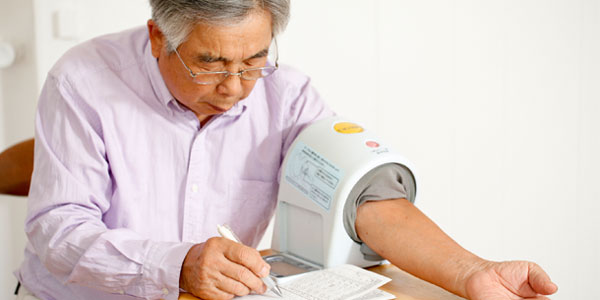Because a heart transplant is only performed on people experiencing advanced heart failure or a life-threatening congenital abnormality, it literally offers a new lease on life. However, your new life will be quite different from those around you—and perhaps from what you anticipated. Here’s what to expect once you leave the hospital.
Monitoring
For the first several months after a heart transplant, you will return frequently to the hospital for testing that may include blood tests, lung function tests, electrocardiograms and biopsies of the heart tissue. (Eventually, these will be done annually.) These tests help your doctor detect any sign of rejection of the organ. You can help by staying aware of any signs or symptoms of organ rejection that include flu-like symptoms (chills, aches, fatigue), rapid weight gain, changes in heart rate and blood pressure, and shortness of breath. Your doctor will likely ask you to keep a home diary of your weight, blood pressure and pulse to participate in this monitoring.

Rehabilitation
You will begin a program of cardiac rehabilitation to improve your health, build strength and gradually increase your activity level. Sutter’s medically-supervised cardiac rehab programs include all aspects of your rehabilitation, including education, counseling and physical movement.
Medications
For the rest of your life, you will take anti-rejection drugs (immunosuppressants) to keep your body from interpreting the new organ as a foreign object. These powerful drugs have various side effects, so your doctor will work with you to determine the combination that works best for you. You will have to keep track of your medications, keep a list with you at all times and refill as necessary so you never miss a day. Your Sutter Health network heart transplant team will help you find a system of medication management that works best for you.
Infection Prevention
You will be at greater risk of infection after your heart transplant. Because of this, you should avoid situations where you may be exposed to infectious conditions, such as crowded spaces and contact with animals (especially their feces)—at least for the first months after your surgery. Keep good dental hygiene to avoid mouth infections. Watch for signs of chest or lung infections, such as shortness of breath, cough or change in your mouth fluids. Any redness, swelling or drainage from the site of your incisions should be examined by your doctor. For the rest of your life, you should tell any medical professional of your situation before they perform surgery or another invasive procedure that could put you at risk of infection. They can suggest alternative care or take extra precautions as necessary.
Sex and Pregnancy
After a period of healing, usually about 12 weeks, you should be able to resume sexual activity without risk of injury. Some men do experience erectile dysfunction after a heart transplant so talk with your doctor about possible treatments if necessary. Also, keep in mind that a heart transplant does not typically affect fertility, so discuss birth control options with your doctor as necessary. Any woman wishing to get pregnant should first determine her health risks with her doctor. A successful pregnancy is possible in some women, but it will require extra care throughout the pregnancy and childbirth.
Emotional Health
You may feel very fearful, depressed, overwhelmed or anxious after heart transplant surgery. These feelings are very normal and common. Please tell your doctor, nurse or other member of the transplant team if you are experiencing any of these emotions. They can help you connect with a professional counselor or a support group that can help.
Doctor Profiles










